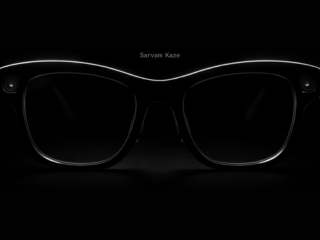- Home
- Apps
- Apps Opinion
- Firefox Quantum Is Worth Your Consideration
Firefox Quantum Is Worth Your Consideration

Though Google Chrome is the most popular browser today, it didn't even exist a decade ago. Firefox was the obvious choice for power-users like me, and even as Chrome overtook it in both speed and scale, many of us stuck with it. The reasons for my loyalty were simple: all of my browsing history, bookmarks, extensions and passwords were on Firefox, so why bother wasting hundreds of precious seconds setting up a new browser?
The breaking point arrived last year, with Firefox struggling to deal with the number of tabs I had to use. The switch to Chrome left those problems behind, and Google's browser gained yet another user. But Mozilla has quietly staged a comeback, with the launch of a revamped version – Firefox Quantum – which promises a lot: double the speed as the old Firefox, and much less memory usage versus Chrome. That may not mean much for most people - browser speed is the kind of metric you can't easily feel or tell, but the latter bit is crucial for those that don't have the luxury of double-digit RAM figures.
And it wasn't just me who was drawn to the new Firefox. My colleagues at Gadgets 360 - like many others on the Internet - shared tales of memory and battery drain across devices when using Chrome. And there are others who detest Google's widespread tracking of its users, which has led them to avoid its browser as well. For all of us, Quantum beckoned.
For those who keep dozens and dozens of tabs open for weeks at a time – something I end up doing while researching for stories – the new Firefox is more stable and performs better on less-powerful desktops and laptops. Firefox has always gone the route of only loading old tabs once you click on them, unlike Chrome, which again adds to better memory usage. But more importantly, you can resume your work faster on start-up.
Plus, Mozilla has always had a commitment to privacy unlike its biggest rival. Even before Quantum, Firefox shipped with built-in tracking protection, which puts a stop to user profiling that works by collecting user data across websites, and even took care of the worst kind of ads. That means you can get protection from nosy, distracting banners even on your iPhone, where both Firefox and Chrome currently don't support third-party extensions.
And then there are the various small things, such as a nifty screenshot tool. Firefox also has a built-in reading mode, something Chrome has always been wary of offering, possibly because it hides ads that Google itself makes billions from. And it offers direct integration of Pocket, the Mozilla-owned read-it-later service. Pocket also surfaces recommended saved articles from across the Web.
Though Chrome has an option to access tabs you opened on other devices, Firefox Quantum just makes it more seamless. With "Send to Device", which is available platform-wide on mobile, you can send any webpage you're looking at to your work machine at a single tap, and it'll load in the background without bothering you. The only complaint I've is that a tab sent from a private browsing window doesn't retain that aspect, which I would've loved.
Firefox also handles links better on both desktop and mobile. On the latter, there's a menu item for copying the URL, so you don't have to get annoyed moving your finger around trying to select text. And with the former, Firefox identifies and separates the domain name and the path, which is a big boon if you tend to visit different pages on the same website (like I do). This will get technical for a minute, so stay with me.
Let's take the link https://www.gadgets360.com/tags/the-weekend-chill – a collection of all our weekend entertainment picks pieces – as an example. I visit the website a lot more because I work here, so typing 'g' brings up 'www.gadgets360.com' on both Firefox and Chrome. I'll then hit the right arrow key, and type 't'. This is where the behaviour splits. Chrome auto-fills the most-used entry, which in my case is 'tags/the-weekend-chill', while Firefox stops at 'tags/', letting me further define what page I'm looking for. Hence on Chrome, I end up having to backspace most of the time.
And then there's the "View Page Info" option in the Firefox context menu, which has been a life-saver for me on more than one occasion. As a journalist, finding the right image is an important part of the job every single day. While the best websites allow you to simply right-click an image and view it in a new tab, some are designed in ways that prevent you from doing so. But thanks to Firefox's Page Info feature, I can easily browse through all the pictures and video embedded on a page, and save the ones I'm looking for. Chrome too offers something similar, but it isn’t as convenient as Firefox’s implementation.
![]()
Of course the use of such features depends on your day-to-day requirements. There are avenues where Chrome has the obvious upper hand, especially when it comes to Google's own suite of products. Even though Firefox is my primary browser, I find myself opening Chrome whenever I need an entire page translated in one go. Sure, there are extensions in Firefox but they aren't nearly as seamless. Some Google products - such as Music Manager and YouTube TV - don't even work in other browsers.
Chrome also does a better job with search engine handling, building a roster as you browse the Web. All you need to do then is type in the first few letters of the website name, say 'wiki' for Wikipedia, and then hitting Tab throws you into a Wikipedia-only search mode that takes out a step or two. With Firefox, I'll end up on the Google search results page before I head to where I actually wanted to go. That's a better determinant of speed on the Internet.
But the biggest need for Chrome is a by-product of its dominance: it's making developers lazy. Because Chrome commands a lion's share of the clicks, most website builders are optimising for Chrome, and simply working on the rest later. This is what led a reporter at The Verge to claim that "Chrome is turning into the new Internet Explorer 6", which was a bit hyperbolic. I ended up on an interactive story the other day that would only work with Chrome. That's not okay.
Unfortunately, that's the world we live in at the moment. Even if you decide to switch to the new Firefox – or return, as I did after having moved to Chrome for a while in between – you'll need to keep Google's browser around on your laptop, just in case. But for the most part (and especially on mobile), Firefox Quantum – with the improved efficiency, built-in screenshots, and privacy protection – is worth your consideration. It's time to spare those precious seconds.
Get your daily dose of tech news, reviews, and insights, in under 80 characters on Gadgets 360 Turbo. Connect with fellow tech lovers on our Forum. Follow us on X, Facebook, WhatsApp, Threads and Google News for instant updates. Catch all the action on our YouTube channel.
Related Stories
- Samsung Galaxy Unpacked 2026
- iPhone 17 Pro Max
- ChatGPT
- iOS 26
- Laptop Under 50000
- Smartwatch Under 10000
- Apple Vision Pro
- Oneplus 12
- OnePlus Nord CE 3 Lite 5G
- iPhone 13
- Xiaomi 14 Pro
- Oppo Find N3
- Tecno Spark Go (2023)
- Realme V30
- Best Phones Under 25000
- Samsung Galaxy S24 Series
- Cryptocurrency
- iQoo 12
- Samsung Galaxy S24 Ultra
- Giottus
- Samsung Galaxy Z Flip 5
- Apple 'Scary Fast'
- Housefull 5
- GoPro Hero 12 Black Review
- Invincible Season 2
- JioGlass
- HD Ready TV
- Latest Mobile Phones
- Compare Phones
- Lava Bold N2
- Vivo V60 Lite 4G
- Tecno Pova Curve 2 5G
- Lava Yuva Star 3
- Honor X6d
- OPPO K14x 5G
- Samsung Galaxy F70e 5G
- iQOO 15 Ultra
- Asus Vivobook 16 (M1605NAQ)
- Asus Vivobook 15 (2026)
- Brave Ark 2-in-1
- Black Shark Gaming Tablet
- boAt Chrome Iris
- HMD Watch P1
- Haier H5E Series
- Acerpure Nitro Z Series 100-inch QLED TV
- Asus ROG Ally
- Nintendo Switch Lite
- Haier 1.6 Ton 5 Star Inverter Split AC (HSU19G-MZAID5BN-INV)
- Haier 1.6 Ton 5 Star Inverter Split AC (HSU19G-MZAIM5BN-INV)







![[Partner Content] OPPO Reno15 Series: AI Portrait Camera, Popout and First Compact Reno](https://www.gadgets360.com/static/mobile/images/spacer.png)









